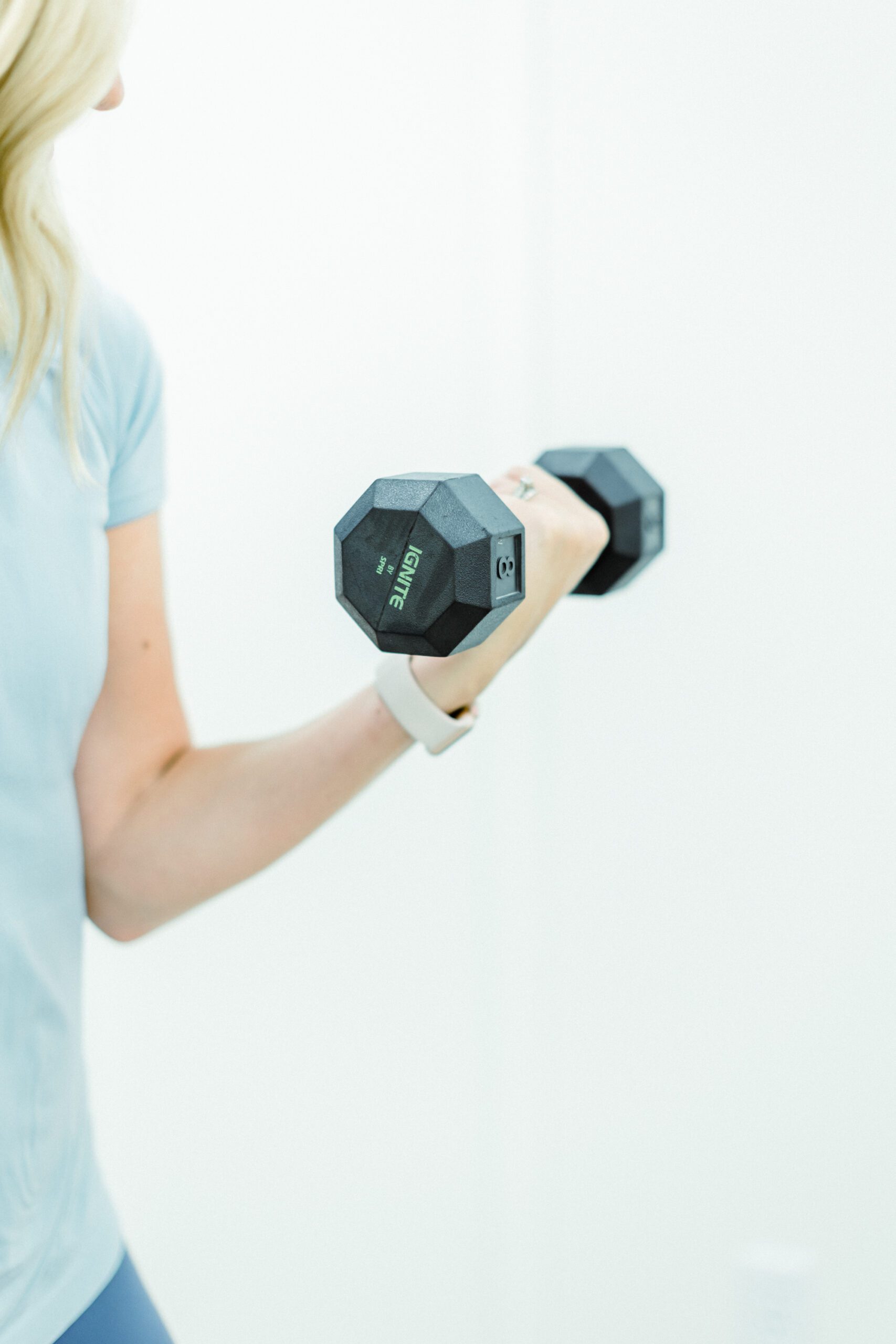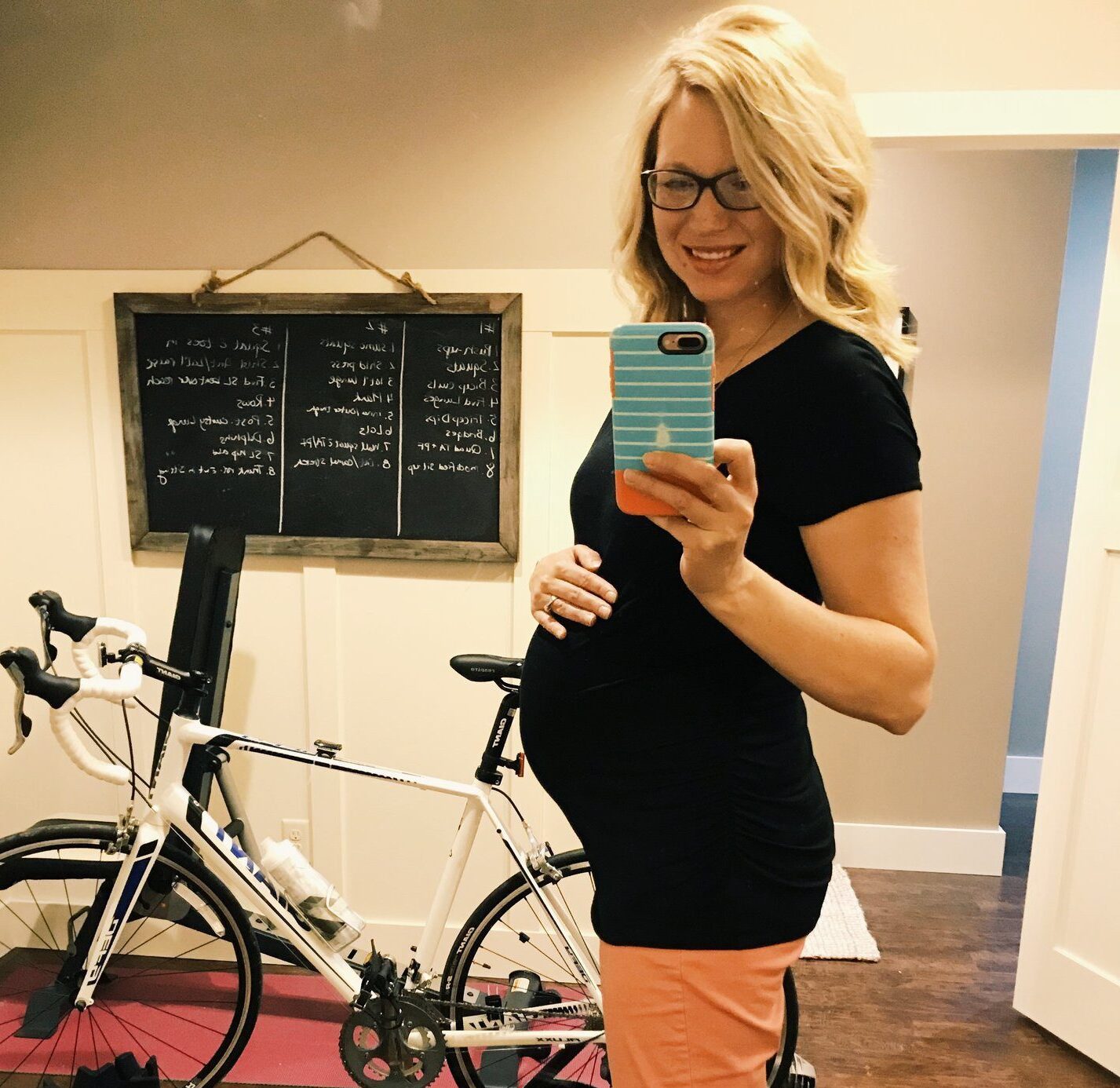- Not to go all out with my workouts, but how to work out safely – During my first pregnancy, I had dreams of keeping up my running the entire time. I lasted until 28 weeks when I injured my SI joint during a run. The last trimester was so miserable as I suffered in pain the entire time. During the next pregnancy, I was scared to move bc of my previous experience and did very little for exercise. While I had less pain, it was not great for me physically or mentally. Finally, during my last pregnancy, I learned to listen to my body and incorporated a combination of walking and weightlifting, which helped me stay strong and feel great throughout. I wish I had known the importance of modifying when necessary, yet still moving in safe and effective ways.
- L&D prep can change your life – I went into my first pregnancy basically expecting the nurses to direct me during L&D and tell me what to do. While I had taken childbirth classes, I didn’t find them very helpful in prepping for birth, but figured I’d be fine. As it turns out, I was completely wrong. I went to the hospital way too early, had horrible back labor, and spent an entire night walking the halls of the hospital without any advice on how to make things better. I then got an epidural 10 hours later b/c I was exhausted after being up all night with strong contractions (and very little progress). This left me feeling hopeless and defeated. My delivery ended with an episiotomy and 3rd degree tear b/c I knew nothing about positioning and just pushed on my back like I was told. Because I had a strong epidural, I couldn’t feel my contractions and didn’t know how to push effectively. The entire experience made me feel like a failure as a woman and made me extremely fearful for future births. It wasn’t until my last baby, after I had done L&D training, that I took a totally different approach. I stayed home as long as possible, had back labor again, but knew exactly what to do, skipped the epidural, and pushed my baby out on my side. I walked away with no tearing, and my postpartum recovery was a breeze. It was a truly redemptive experience and showed me that anyone is capable of a non-medicated birth when they’re given the right tools and the ability to listen to their natural instincts.
- Keeping the inner core strong matters – When I was having my babies, I had little to no understanding of the inner core. I thought all core muscles had the same function, and while I knew it would be beneficial to keep them strong, it’s challenging to stay motivated to work on the core when it feels like every core muscle is just getting stretched out during pregnancy. Now that I have worked with hundreds of pregnant women, I’ve been able to apply my knowledge of the inner core system (which differs from the outer core) and test it during pregnancy to see the results both during pregnancy and postpartum. It’s been amazing to see the difference it makes during pregnancy when our inner core stays strong (such as preventing back and pelvic pain) and how much smoother postpartum recovery becomes as well (e.g., little to no abdominal separation, no leaking prolapse symptoms, etc.).
- You’re capable of a nonmedicated birth – this ties into #2. Still, because of my poor birth experience with my first baby, I really believed that I was not capable of a nonmedicated birth, and didn’t even consider not having an epidural with the next couple of babies. But what I didn’t realize was that the issue was not my own abilities; the issue was the external situation, which led me to seek an epidural for rest and pain relief. In that situation, I still believe the epidural was the right option. However, if things had gone differently in early labor (if I had been given tools to manage the back labor), I probably could have avoided it altogether. The truth is that, while epidurals are helpful in some situations, I believe every woman is absolutely capable of a nonmedicated birth, especially when birth isn’t interrupted by forced interventions and women are empowered and given tools to help with pain and positioning.
- Don’t let fear mongering scare you into an experience you don’t want – with one of my babies, I was measuring small and was induced b/c they were fearful that something was potentially wrong. That baby ended up weighing 7 pounds, 7 ounces, and was perfectly healthy. What I didn’t know is that ultrasound readings aren’t very accurate and can vary by as much as a pound in either direction. While that induction ended up going ok, I’ve seen many patients who are fear-mongered into induction for little to no reason at all, and end up with a rough birth experience that could have been avoided if the baby had been allowed to come when he/she was ready.
- Your body has its own unique set point for weight gain/loss. Oh, I cannot tell you how much I stressed about my weight gain during every. Single. Pregnancy. While 25-35# is the recommended amount of weight gain for women, I was always on the higher end – more like #35-40 with every one of my five babies. Thankfully, I NEVER had a doctor or nurse make me feel bad about it – it was only my own internal anxiety that was the problem. And guess what? It made my pregnancies way more stressful than they had to be. I hated doctor’s appointments because I had to get weighed. I would exercise too much to try to keep my weight down, but now I can see that was just the amount of weight my body needed to gain. I wasn’t overeating. I wasn’t sitting around. I was healthy and active, and I was able to lose the weight with every single pregnancy. Now I look back and see what joy was stolen when I stressed over my weight. While I can’t get that back, I hope that my experience will give someone else FREEDOM to not stress over the weight gain and ENJOY the beauty of pregnancy and everything that comes with it!

featured posts:
My TOP SIX components to healing chronic low back pain (sharing all my secrets!) Chronic low back pain certainly isn’t a one-size-fits-all issue, but after treating it for the past 15 years, I have found that some areas need to be addressed in most people. Want more help? Get my FREE E-guide to strengthen your […]
READ THE POST
More from Around the Site

featured posts:
It’s been a long time since I’ve shared with you a list of my go-to favorite things! My husband and I aren’t great at getting gifts for each other (neither of our love languages), but I thought I’d put a list together for you if you need a few new ideas this year! (and PS: […]
READ THE POST
More from Around the Site

featured posts:
Finding yourself in a workout rut? Try these! Remember this: any way you move is a GOOD way. This will look different in various seasons, but SOME movement is always better than NO movement, and once in a while, we just need to trick our brains into something. 😉 Either way, I hope you can […]
READ THE POST
More from Around the Site

featured posts:
I’ve not met a single person who gets excited about modifying an exercise or a workout. Some are more willing than others, some people don’t necessarily mind, but no one is jumping up and down for modifications. More often than not, we feel a little shame over modifying. Modifying is the last resort when we […]
READ THE POST
More from Around the Site

featured posts:
Can I tell you the ONE thing that has helped me develop healthy habits over the past 6 years? I started seeing my body and movement from God’s point of view vs. what the world told me was important. There is a difference between knowledge and belief. It’s one thing to KNOW your body is […]
READ THE POST
More from Around the Site

featured posts:
Your ability to stick with an exercise plan through the end of the year has nothing to do with your schedule, your “willpower,” or your goals. Instead, it has everything to do with your mindset around fitness, and I’d love to give you a gospel-centered perspective. First – do any of these sound familiar?+ You […]
READ THE POST
More from Around the Site
Get in touch!
Relationships are the heart and soul of my business, and if you have a question or would like to connect, I’d LOVE to hear from you! Please reach out and I’d love to get to know you better or answer any questions you might have!!
Have a question? You can also check out our FAQs page!
Subscribe to my email list to stay up to date on everything I’m doing!
